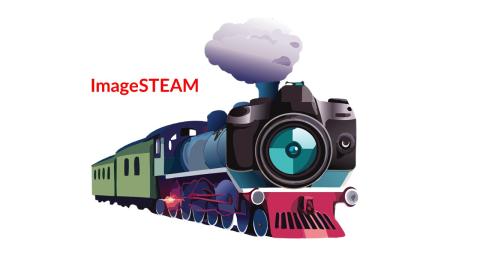Body
Image

ImageSTEAM: Middle School Teacher Professional Development in AI and Visual Computing through Computational Cameras
Artificial intelligence (AI) and its teaching in the K-12 grades has been championed as a vital need for the United States due to the technology’s future prominence in the 21st century. However, there remain several barriers including the inter- disciplinary knowledge needed and the lack of formal training or preparation for teachers to implement these topics in middle school curriculum. We present ImageSTEAM, a teacher professional development for creating lessons for middle school grades 6-8 classes surrounding computer vision, machine learning, and computational cameras. Teacher professional development workshops were conducted in the states of Arizona and Georgia from 2021- 2023 where lessons were co-created with teachers to introduce various specific visual computing concepts while aligning to state and national standards. Results from the professional development workshops highlight key opportunities and challenges in integrating this content into the standard curriculum, the benefits of a co-creation pedagogy, and the positive impact on teacher and student’s learning experiences. The open-source program curriculum is available at www.imagesteam.org.
Pillar 1: Innovative Use of Technologies in Learning and Teaching
The project’s innovative technologies in learning and teaching include, pixlr, Google’s Teachable Machine, Generative AI tools such as NVIDIA’s GauGAN, Custom Google Colab Notebooks, and Tinkercad. The research team created a custom library in Python, lever- aging OpenCV and PyTorch, which can be imported directly from Github. Lessons were designed to integrate these activities directly to teach and deep students’ understanding of key concepts surrounding pixels, color, image size, and machine learning.
Pillar 2: Partnerships for Career and Workforce Preparation.
We partnered with Title I schools for middle school teachers and students both in Georgia and Arizona for both career and workforce preparation.
Pillar 3: Strategies for Equity in STEM Education
As part of project’s strategies for equity in STEM education, we recruited middle school teachers and students from Title I schools in Georgia specific districts for equity and inclusion. We found that both teachers and students actually found discussions around bias and ethics less intimidating than some of the more technical topics in AI/CV/ML, and were able to share their opinions more easily based on their own personal experience.

Discipline(s)
Computer and informational technology science
Target Gradespan(s)
Middle school (6-8)
Target Participant(s)
Educators
Project Setting(s)
Formal Education
Category
Conference/Workshop